90% of vocab is forgotten because of poor learning technique
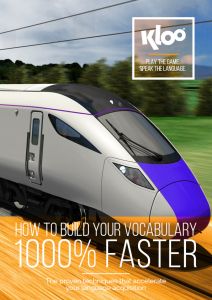 Ever since I discovered that the average child (aged 11 – 16) learns 850 foreign words in the five years leading up to their exams…I have been puzzled.
Ever since I discovered that the average child (aged 11 – 16) learns 850 foreign words in the five years leading up to their exams…I have been puzzled.
850 words – in 5 years?
The research by Milton and Meara is backed up by other studies and indicates that vocabulary learning, at least, is an area that needs to be closley looked at. Doing some simple maths, we can break down this figure. 850 words over 5 years is 170 words a year or just over 3 words a week.
Looking from the perspective of lessons: if we say students have an average of 60 hours of lessons a year, that equates to 3 words an hour. If we were to add in homework – the averages reduces to 2 words an hour.
CLAIM A FREE E-BOOK BELOW: HOW TO BUILD VOCAB 1000% FASTER
2 words an hour!
We know something must be wrong. It is such an amazingly poor return on time and effort on behalf of the teacher, the students and the school. It’s learning at a glacial rate.
Lets be absolutely clear – it’s not the teachers or even the students. Language Teachers are every bit as good as other teachers and students are a constant. So if not the teachers and not the students – then what?
The methodology of vocabulary accumulation
It’s the way that people learn vocabulary that creates the problem. Even now, in the face of all evidence, children and adults are given lists of words (from the curriculum) and told to learn them – as a list. A list of 30 words a week would be quite normal. And yet we can see that 90% of vocabulary is forgotten. If students could learn 3o words a week, in 5 years (based on 30 school weeks a year), students would have a vocabulary of 4500+.
Vocabulary Lists are just wrong.
Lists are just wrong in every way. Dr. H. Douglas Brown in his excellent book “Principles of Language Learning and Teaching” states that if you learn through lists you are likely to suffer from “Systematic Forgetting” – a scary thought which roughly means “in one ear and out the other”. In essence, our brains are not built to retain information in lists….the information goes into the short term memory for emergency use and then released.
Change the way we learn vocabulary and you will dramatically change the outcome
Most people have built up a strong vocabulary in our first language without resort to reading the dictionary. Why do we do this with a foreign language? Dr. H. Douglas Brown says in his book that lists are the worst way to learn a language.
Let’s put vocabulary into context
Luckily, he also says what does work…and that’s putting words into context. When we learn a word in context we are placing it in a relevant place in the memory and then all the other words, already known, act as hooks to help cement the new word into the long term memory. The new word becomes meaningful – and our brains like that!
The result of using contextual learning for vocabulary are spectacular…..our own experience with KLOO suggests that you will learn 10 x faster this way. In KLOO you make sentences and learn words to score points (which in turn power little cars around the game board).
KLOO: A game that packs powerful vocabulary building tools
As you play KLOO this is the process for scoring points:
1. You discover the meanings of words (see this video)…
2. You place them into a relevant context (a sentence), to score points (see this video).
3. You say your sentence out loud to score points.
In KLOO players learn 15 – 25 words in a 25 minute game. The words are all high frequency words needed in the curriculum for students and for life in general. Each deck of cards is themed around a subject (such as “People” or “Food & Drink”). As you learn all the words in one deck you move onto the next, quickly and easily building vocabulary as you go. In no time you know a few hundred words and can make millions of sentences…
Teachers who have embraced KLOO in the classroom have seen the results:
Happy children, learning fast and having fun. Adult self learners love it too.
Even if you don’t buy KLOO – don’t learn from lists
We think that KLOO is a great way to get into a language…but we don’t have it in all languages and so not everyone can use it. So even if you cannot play KLOO, please don’t waste any time on learning from lists. Life is too short. Find Discovery Learning and contextual methods…you’ll learn much, (MUCH) faster.
The Power of Discovery Learning for building vocabulary
http://www.youtube.com/watch?v=IKLbd08Ttbo





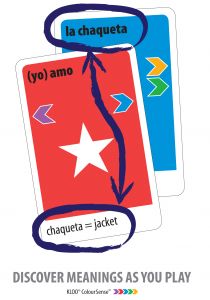
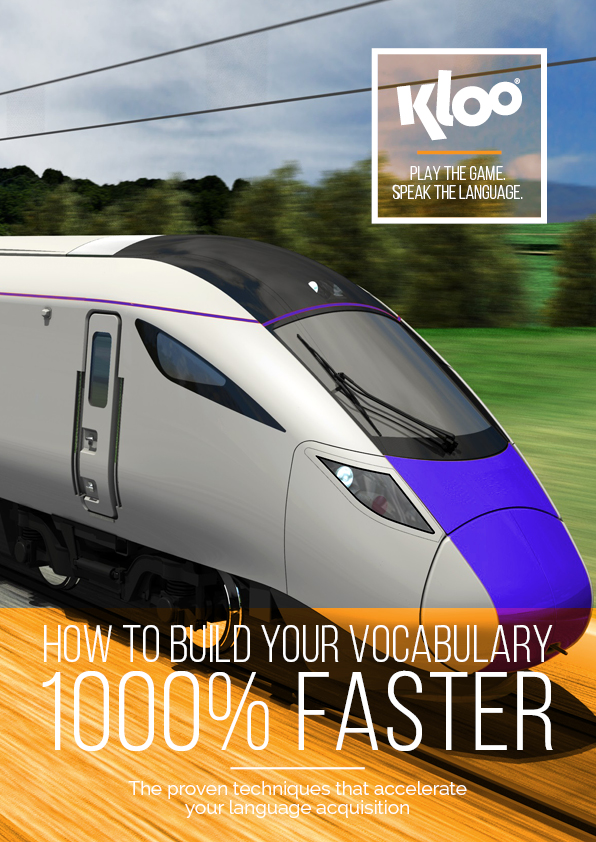
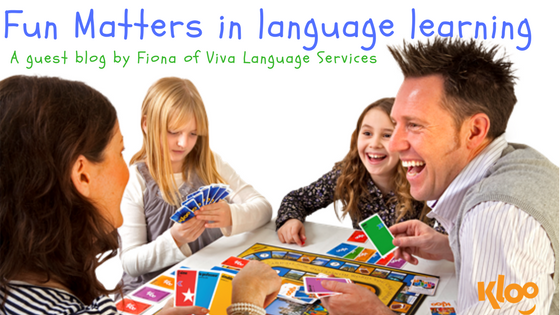

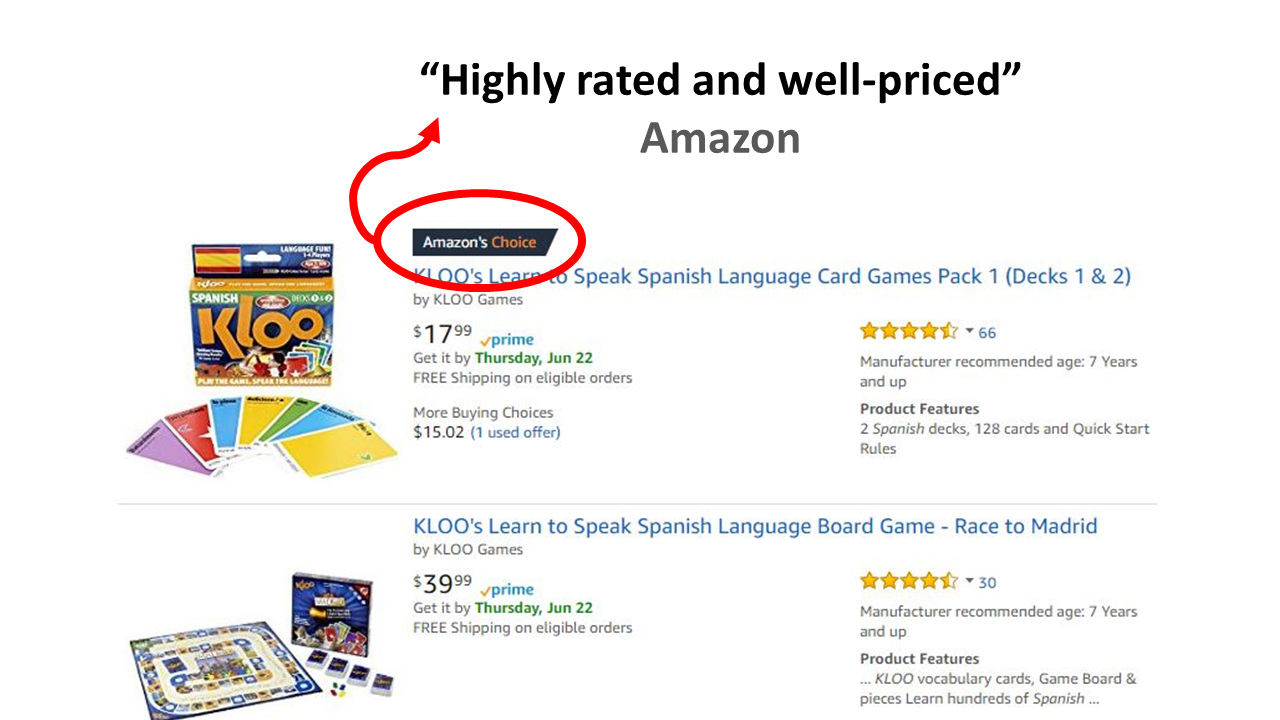
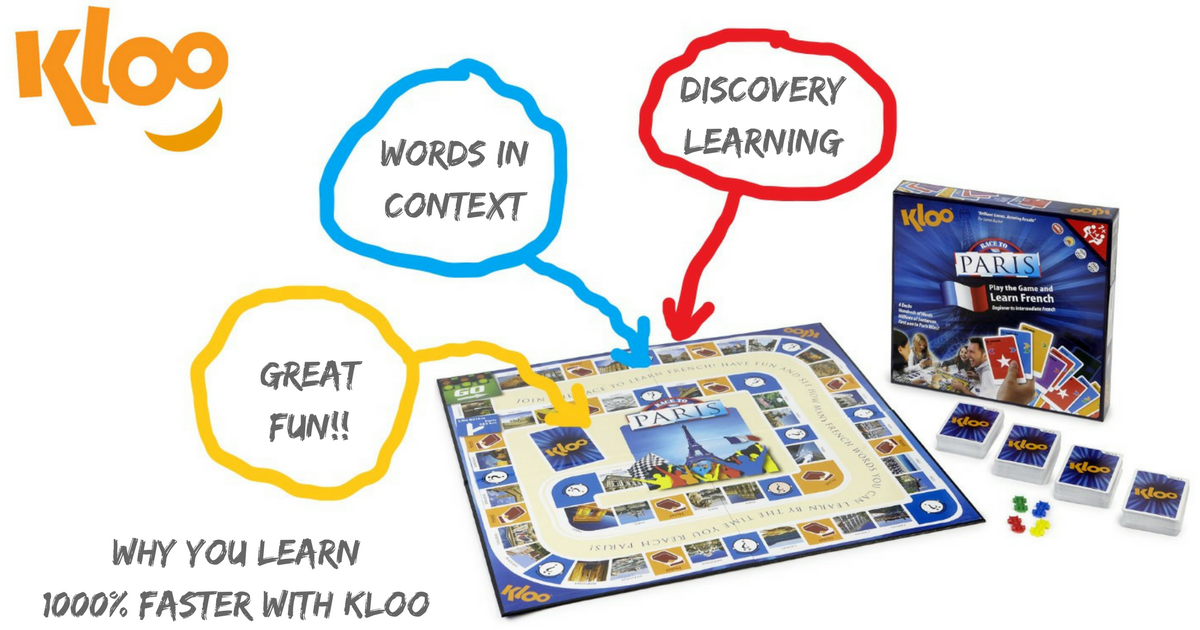

[…] in seconds and build their vocabulary as they play. Amazingly they can learn Spanish or French up ten times faster than by using traditional methods. Indeed, parents can play and learn fast too. The game is KLOO […]